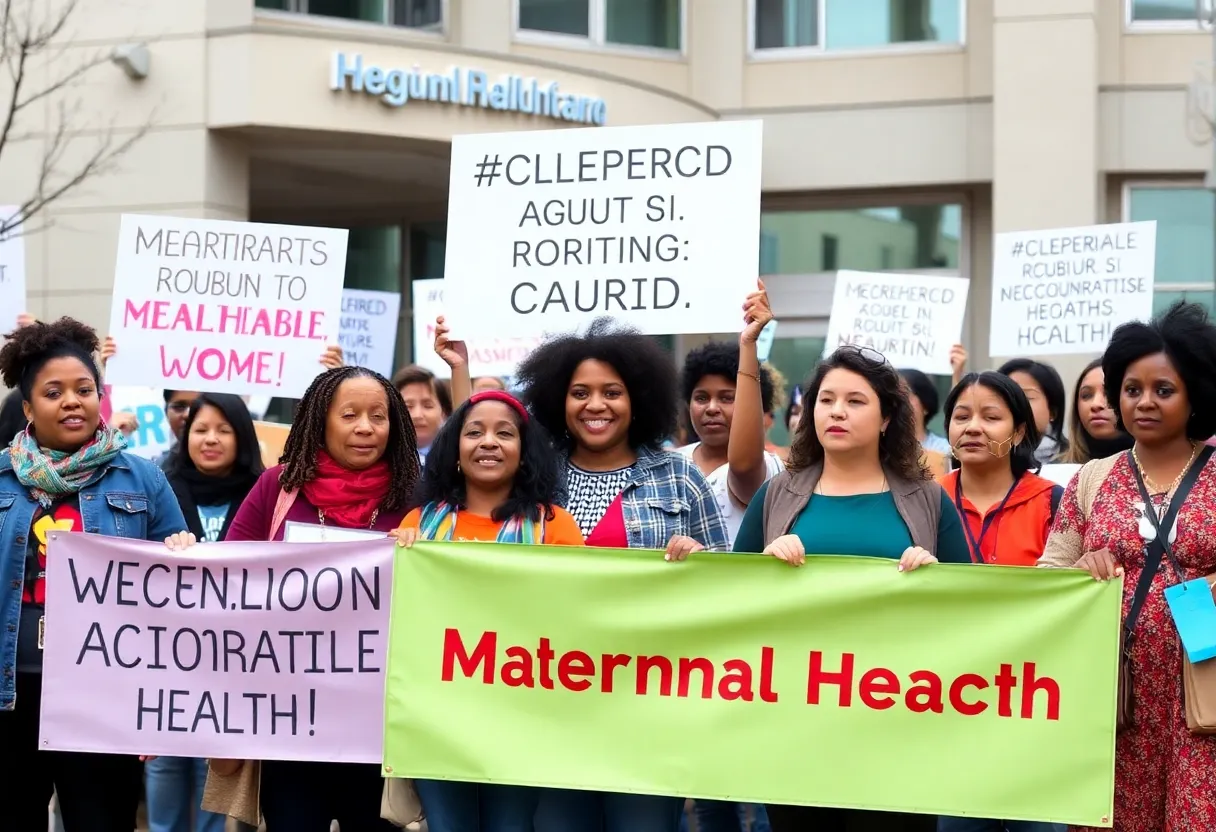

An artistic representation highlighting the call for change in Black maternal healthcare practices.
Want to target the right audience? Sponsor our site and choose your specific industry to connect with a relevant audience.
Prominent brand mentions across targeted, industry-focused articles
High-visibility placements that speak directly to an engaged local audience
Guaranteed coverage that maximizes exposure and reinforces your brand presence
Interested in seeing what sponsored content looks like on our platform?
May’s Roofing & Contracting
Forwal Construction
NSC Clips
Real Internet Sales
Suited
Florida4Golf
Click the button below to sponsor our articles:
Sponsor Our ArticlesThe tragic story of Kira Johnson’s death shortly after childbirth highlights the systemic issues in Black maternal healthcare. Charles Johnson, her husband, is raising awareness about the alarming disparity in risks faced by Black women during pregnancy. In response to this loss, he has filed a civil rights lawsuit against Cedars-Sinai Medical Center, while advocates call for further accountability and transparency in healthcare practices to ensure better care for Black mothers.
In a shocking and tragic story, a man named Charles Johnson is drawing attention to the dire state of Black maternal care after losing his wife, Kira Johnson, just hours after giving birth to their second child. Kira, a healthy 39-year-old Black woman, had a C-section that lasted only 17 minutes. But post-procedure complications led to her untimely death due to internal bleeding, after allegedly waiting over 10 hours for the necessary medical attention. This heart-wrenching loss has propelled Johnson into a relentless fight for justice and change in healthcare practices.
Johnson was stunned to discover that Black women like his wife face a much higher risk during pregnancy. Statistics reveal that Black patients are three times more likely to die from pregnancy-related complications compared to their white counterparts, a shocking reality that has prompted advocates to call for greater accountability in healthcare systems like Cedars-Sinai Medical Center. Despite pleading for assistance in those critical last hours of Kira’s life, Johnson feels frustrated that no effective intervention took place in time.
In the aftermath of this tragic incident, Johnson took decisive action by filing a civil rights lawsuit against the hospital. His determination to raise awareness about maternal health, especially for Black women, continues to drive his efforts. Johnson openly linked Kira’s death not to her race but to the broader issue of “systemic racism” embedded in healthcare practices, which he believes contributed to her death.
Last month, Cedars-Sinai Medical Center reached a settlement with the federal government after an investigation revealed alarming discrepancies in care provided to Black patients, particularly during urgent situations like obstetric hemorrhages. While the settlement agreement with the Department of Health and Human Services Office for Civil Rights mandates Cedars-Sinai to report on their compliance, it does not imply any admission of wrongdoing. This has left many feeling that more needs to be done.
Cedars-Sinai has introduced various initiatives aimed at combating bias within the healthcare system. These include anonymous reporting tools for patients and unconscious bias training for staff. Yet, advocates like the organization 4Kira4Moms, which Johnson leads, believe these efforts are just a start and call for additional monitoring and oversight of the hospital’s practices, demanding a thorough evaluation of their effectiveness.
Advocacy groups are pushing for several changes at Cedars-Sinai, including an acknowledgment of the systemic failures in maternal healthcare, the creation of an independent oversight board, and the independence of the Office of Patient Advocacy. They argue that transparency is critical, particularly in providing access to vital resources like doula programs, which can improve maternal care outcomes.
As discussions continue around accountability and equitable healthcare for Black patients, there are rising concerns about the impact of shifting political landscapes on enforcement of agreements like the one made with Cedars-Sinai. Skepticism about federal support for equity initiatives is prevalent, particularly under the new administration. The struggle for fair treatment and improved standards in maternal healthcare remains ongoing, with advocates advocating persistently for solid oversight and necessary actions based on past failures.
For families like Johnson’s, the journey toward justice and reform is just beginning. Advocates are united in their fight to ensure that future generations of Black mothers receive the care and respect they deserve during one of the most vulnerable times in their lives. As this new chapter unfolds at Cedars-Sinai, the emphasis on accountability and transparency in healthcare is more crucial than ever.
Step-by-Step Guide to a DIY Kitchen Remodel: Save Money and Stay on Trend Embarking on…
News Summary The National Patients’ Convention organized by Mission Arthritis India (MAI) focused on the…
News Summary Oluwatosin Adesoye reflects on her impactful two-year journey as a columnist focused on…
News Summary Ubie, the global healthcare AI platform, has doubled its user base to 4…
News Summary Healthcare startup Solace has achieved an over $300 million valuation after a successful…
News Summary The Japanese government has postponed planned increases to out-of-pocket medical expenses originally set…